第101章 CHAPTER XV(3)
The best means of protecting the southern frontier was to have as allies a large body of men leading the same kind of life and capable of carrying on the same kind of warfare as the nomadic marauders; and such a body of men were the Free Cossacks. The sentiment of self-preservation and the desire of booty kept them constantly on the alert. By sending out small parties in all directions, by "procuring tongues"--that is to say, by kidnapping and torturing straggling Tartars with a view to extracting information from them--and by keeping spies in the enemy's territory, they were generally apprised beforehand of any intended incursion. When danger threatened, the ordinary precautions were redoubled. Day and night patrols kept watch at the points where the enemy was expected, and as soon as sure signs of his approach were discovered a pile of tarred barrels prepared for the purpose was fired to give the alarm. Rapidly the signal was repeated at one point of observation after another, and by this primitive system of telegraphy in the course of a few hours the whole district was up in arms. If the invaders were not too numerous, they were at once attacked and driven back. If they could not be successfully resisted, they were allowed to pass; but a troop of Cossacks was sent to pillage their aouls in their absence, whilst another and larger force was collected, in order to intercept them when they were returning home laden with booty. Thus many a nameless battle was fought on the trackless Steppe, and many brave men fell unhonoured and unsung:
"Illacrymabiles Urgentur ignotique longa Nocte, carent quia vate sacro."
Notwithstanding these valuable services, the Cossack communities were a constant source of diplomatic difficulties and political dangers. As they paid very little attention to the orders of the Government, they supplied the Sultan with any number of casi belli, and were often ready to turn their arms against the power to which they professed allegiance. During "the troublous times," for example, when the national existence was endangered by civil strife and foreign invasion, they overran the country, robbing, pillaging, and burning as they were wont to do in the Tartar aouls. At a later period the Don Cossacks twice raised formidable insurrections--first under Stenka Razin (1670), and secondly under Pugatchef (1773)--and during the war between Peter the Great and Charles XII. of Sweden the Zaporovians took the side of the Swedish king.
The Government naturally strove to put an end to this danger, and ultimately succeeded. All the Cossacks were deprived of their independence, but the fate of the various communities was different. Those of the Volga were transfered to the Terek, where they had abundant occupation in guarding the frontier against the incursions of the Eastern Caucasian tribes. The Zaporovians held tenaciously to their "Dnieper liberties," and resisted all interference, till they were forcibly disbanded in the time of Catherine II. The majority of them fled to Turkey, where some of their descendants are still to be found, and the remainder were settled on the Kuban, where they could lead their old life by carrying on an irregular warfare with the tribes of the Western Caucasus. Since the capture of Shamyl and the pacification of the Caucasus, this Cossack population of the Kuban and the Terek, extending in an unbroken line from the Sea of Azof to the Caspian, have been able to turn their attention to peaceful pursuits, and now raise large quantities of wheat for exportation; but they still retain their martial bearing, and some of them regret the good old times when a brush with the Circassians was an ordinary occurrence and the work of tilling the soil was often diversified with a more exciting kind of occupation.
The Cossacks of the Ural and the Don have been allowed to remain in their old homes, but they have been deprived of their independence and self-government, and their social organisation has been completely changed. The boisterous popular assemblies which formerly decided all public affairs have been abolished, and the custom of choosing the Ataman and other office-bearers by popular election has been replaced by a system of regular promotion, according to rules elaborated in St. Petersburg. The officers and their families now compose a kind of hereditary aristocracy which has succeeded in appropriating, by means of Imperial grants, a large portion of the land which was formerly common property. As the Empire expanded in Asia the system of protecting the parties by Cossack colonists was extended eastwards, so now there is a belt of Cossack territory stretching almost without interruption from the banks of the Don to the coast of the Pacific. It is divided into eleven sections, in each of which is settled a Cossack corps with a separate administration.
When universal military service was introduced, in 1873, the Cossacks were brought under the new law, but in order to preserve their military traditions and habits they were allowed to retain, with certain modifications, their old organisation, rights, and privileges. In return for a large amount of fertile land and exemption from direct taxation, they have to equip themselves at their own expense, and serve for twenty years, of which three are spent in preparatory training, twelve in the active army, and five in the reserve. This system gives to the army a contingent of about 330,000 men--divided into 890 squadrons and 108 infantry companies--with 236 guns.